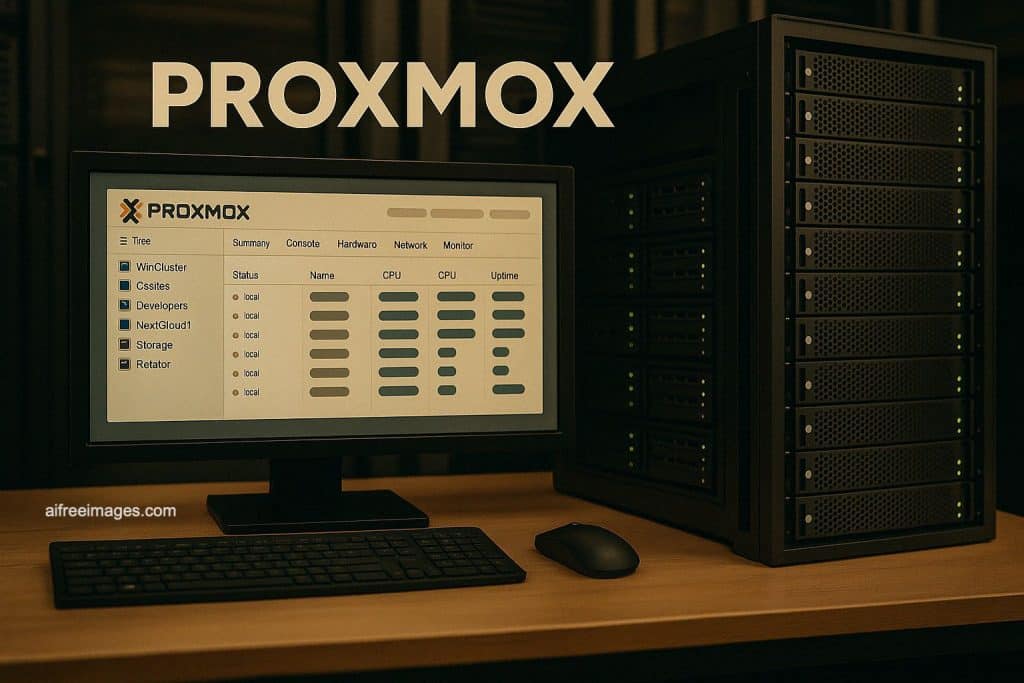The virtualization world welcomes a new high-level open source tool designed for administrators and developers working with Proxmox VE environments. Leeca Proxmox VE SDK is a project built in Rust with a clear goal: to provide a robust, type-safe, and async-first abstraction layer for interacting with the Proxmox VE API—one of the most popular open-source hypervisors in the professional sector.
A Modern and Secure SDK from the Ground Up
Launched this summer on GitHub and currently at version 0.1.0, the project is a solution that leverages Rust’s ecosystem advantages to create clients and automation tools for Proxmox VE. Among its standout features is async-first support via Tokio, Rust’s leading asynchronous runtime. This enables non-blocking operations and establishes a solid foundation for efficient, scalable virtual infrastructure management.
Authentication is based on immutable value objects, ensuring data integrity and security throughout the process. Error handling is type-safe and contextually propagated, making debugging and exception management much easier. On the testing side, the SDK includes exhaustive property-based testing and mocks, as well as CI/CD integration to guarantee quality and stability with every release.
Architecture and Design Principles
Leeca Proxmox VE SDK is built on Clean Architecture and Domain-Driven Design (DDD) principles, leveraging Rust’s type system for compile-time validation and thread-safe operations. The aim is to minimize production errors and simplify maintenance—essential in environments where reliability is critical.
Though still in its early stages, the project already boasts an advanced technical foundation and is ready to incorporate new features in a modular fashion. Upcoming enhancements include:
- Comprehensive resource management: nodes, containers, and storage.
- Real-time monitoring via WebSocket.
- Batch operations with retry policies.
- Event and metrics system for advanced observability.
An Open and Collaborative Project
The SDK is fully documented and ideal for those who want to learn or contribute in areas such as modern SDK architecture with Rust, virtualization, advanced testing, or CI/CD. The community is encouraged to participate, as the project includes clear guidelines, issue and PR templates, and a code of conduct to ensure a collaborative environment.
Installation and Getting Started
To use Leeca Proxmox VE SDK, you’ll need Rust (nightly), Cargo, and the Tokio runtime. Installation is as simple as running:
cargo add leeca_proxmoxA basic usage example demonstrates how to authenticate and connect to a Proxmox VE server, manage session tokens, and handle CSRF protection—all through asynchronous operations and comprehensive validation.
License and Community
The project is licensed under Apache License 2.0 and is developed publicly. You can review, contribute to, or resolve questions via its GitHub repository, where you’ll also find technical documentation, the changelog, and the roadmap for future versions.
In summary: Leeca Proxmox VE SDK is a step forward in modern and secure management of virtualized infrastructures. Its focus on Rust, async-first design, and openness to community contributions make it a compelling option for administrators, DevOps professionals, and developers seeking robustness and efficiency for their Proxmox VE deployments.

